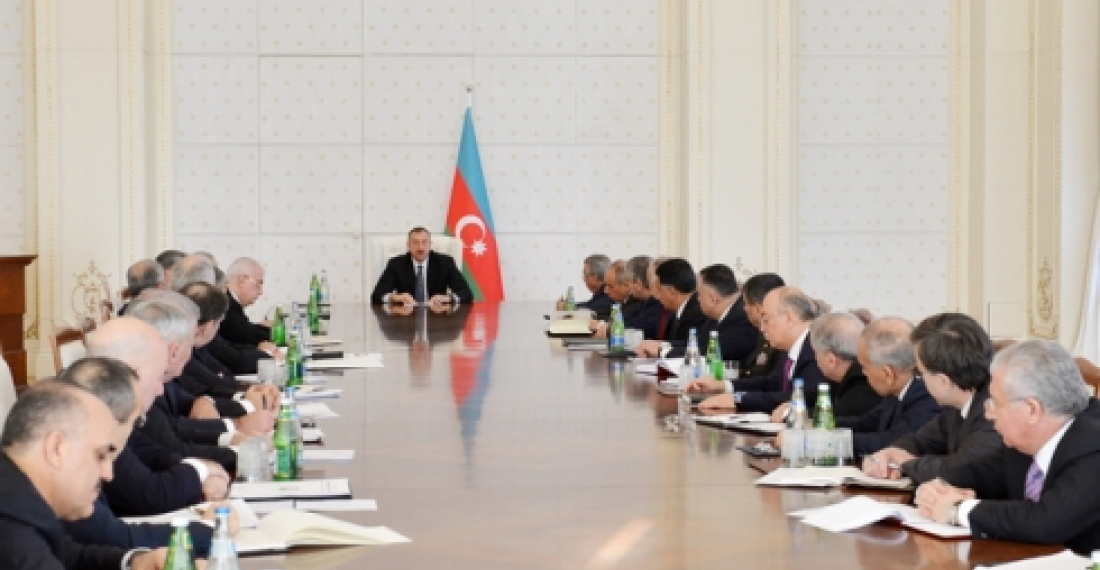President Ilham Aliev of Azerbaijan made his first public comment on the current state of negotiations on the Karabakh conflict since his November meeting in Vienna with his Armenian counterpart Serzh Sargsyan. Addressing his Cabinet of Ministers in Baku on Thursday (9 January) Aliev said that 2013 had been one of stagnation in the negotiation process, but there had been some movement right at the end. Aliev added that there was some hope, and some moments of optimism, but in 2014 it would be possible to ascertain Armenian intentions.
Aliev used the speech to reiterate the Azerbaijani position on the conflict. He said that a solution had to be based on the territorial integrity of Azerbaijan, and that Azerbaijan will never allow a second Armenian state to be established on its historic lands. Aliev said that the experience of 2013 does not give ground for optimism as throughout the negotiations Armenia had demonstrated an "unconstructive" position.
President Aliev also spoke about reforms in the Azerbaijani Armed Forces which he said had been initiated in 2013 and will lead to a stronger Azerbaijani military capability. The Azerbaijani leader emphasised the sharp difference in the strength of Azerbaijan and Armenia, and said that as an example the state budget of Azerbaijan was this year ten times that of Armenia.
President Aliev said that in 2013 twenty thousand new appartments were built for families that had been displaced by the Karabakh conflict. He said that a similar number will also be built this year, and that the process will continue until those still living in refugee conditions are properly housed.
source: commonspace.eu with agencies.
photo: President Ilham Aliev addressing a meeting of the Cabinet of Ministers in Baku on 9 January 2014 (Picture courtesy of the Press Service of the President of Azerbaijan)







